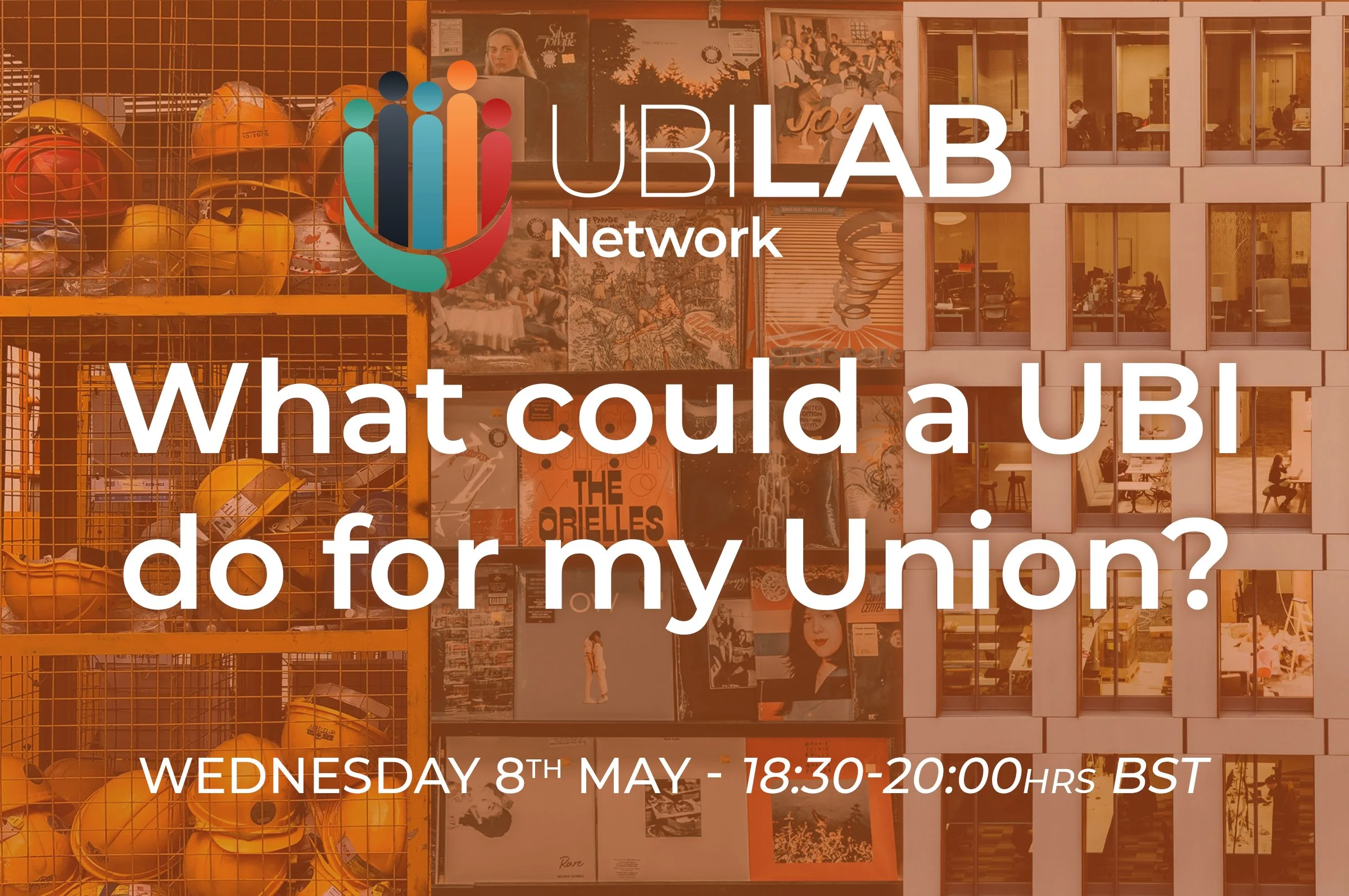FREE to attend - Sign up here (or scroll to the bottom of this page)
We invite you to an enlightening event where we will explore the potential benefits of Universal Basic Income (UBI) for trade unions and their members. This is a unique opportunity to engage in meaningful dialogue about how UBI could bolster our collective bargaining power, provide financial security for our members, and contribute to a fairer society. We will continue our discussion from Basic Income North 2023 on what UBI can do for unions and how union members can support UBI.
We will explore various themes, such as the value of paid and unpaid work and the importance of solidarity.
Panel
John McDonnell MP - Labour MP for Hayes and Harlington and former Shadow Chancellor.
Vicky Blake - Leeds University UCU Honorary Secretary and former UCU General Secretary contender.
Balraj Samrai - Musician, facilitator and youth worker
Jonathan Rhys Williams - Lawyer GMB Wales and South West and Co-founder of UBI Lab Wales.
Chair: Maddy Radcliff- Campaigns and Social Media Manager, Communications and Government Relations for the Musicians' Union.
There is significant complexity surrounding Trade Unions and their position on a Universal Basic Income. However, UBI is fully in line with trade union principles; solidarity, workplace representation, rights, equality and democracy. A UBI can be used as a tool for Trade Unions (for members and organisations).
For example, when in dispute, a UBI provides an indefinite strike fund. As a UBI is non-withdrawable, striking members would be able to rely on this as a ‘basic income’, meaning that members could still meet their monthly outgoings, whilst being able to remain on strike – forcing the employer back to the negotiating table and strengthening the hand of the Union.
In case you want to know more about Universal Basic Income, we have created a list of key points of what we want a UBI to be:
A UBI is a monthly sum paid to everyone to act as a basic income on top of work. This is so people can pursue opportunities which require financial help, do work they want to do whether that is paid or unpaid volunteering and to act as a safety net in case of unexpected situations.
Dr. Dave Beck, University of Salford on UBI and work:
When talking about UBI, we need to also talk about the idea of work and how it represent us as individuals. The very idea of meeting a new person often is followed by the question – what do you do? Work is a central pillar to our identity, it shapes who we are as individuals, but so do many other things. In my work as Sociologist, however, I often remind myself (and students in lectures) that I’m simply more than a ‘Sociologist’, a function that I perform for 8-hours a day. I’m a dad (far more important than my paid occupation) a job I do every hour of the day. So why don’t we introduce ourselves as this function?
We need to question the foundation of ‘what is work’? in 1972 Costa et al argued for ‘Wages for Housework’, an international campaign that demanded governments recognise the value of unpaid work done in the home, primarily by women. The campaign argued that the entire capitalist system was based on free domestic labour. Some updated figures evidence that:
On average, women do 26 hours of unpaid work a week, while men do 16 hours.
Nearly half of working-age women provide an average of 45 hours of unpaid care every week.
Over 25% of women spend more than 10 hours a week doing unpaid indoor housework. For men this is 8%.
A UBI allows for the recognition that work doesn’t just stop after 8-hours, and that I’m more than just a Sociologist. Moreover, a UBI recognises that a payment is needed for the unequal distribution of this unpaid work.

